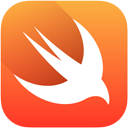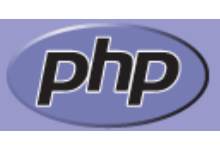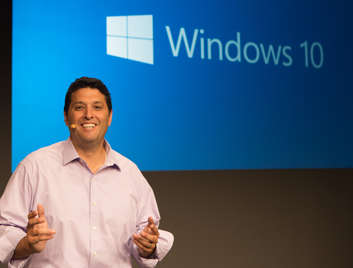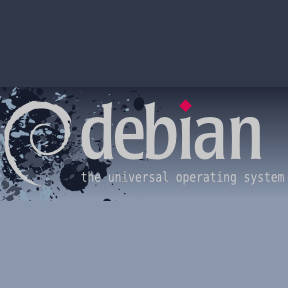|
Page 1 of 2 What happened in 2014 that was important to programming and programmers? Here we look back at languages, OS, Web dev and mobile. Next time AI, IoT and security.
Where else could our review of the programming year start? It has to be a look at what happened in the world of programming languages.
Languages
JDK 8 was launched and this probably overshadows just about any other language news - because Java is a big important language and JDK 8 is proof that it is still going places, for more see Java 8 Launched With Supporting Line-Up.
Even so the paint had hardly dried on Java 8 when attention turned to the next version - Java JDK 9 Proposals and JDK 9 Update.

Java is still an important language but in 2014 many of its failings became apparent. It is no longer as welcome as it was in the browser and this is something that most are begining to accept. There are ways of getting Java to run in the a browser but most users aren't willing to make the effort.

One of the surprise big noise maker this year was Wolfram Language. It was as if Wolfram woke up and started to think about the future of its Mathematica related technologies and how to spin off the whole Mathematica idea as a language for technical computation.
After spending lots of time pondering the name of the language of Mathematica, Stephen Wolfram finally settled on the obvious - Wolfram Language. Following on this we have the launch of a cloud computing facility and Mathematica 10. It is still difficult to know if Wolfram Language will have any impact beyond Mathematica but it has brought it to the attention of a lot of people who would have dismissed it as a "just for math" facility. It would probably stand a better chance of success if it had been called something cool.

Talking of something cool Apple launched a completely new language called Swift aimed at making iOS apps easier to create - Apple's New Language - Swift. Overall the language is unremarkable looking a lot like a version of C# but compared to the language it is targeted to replace, Objective C, its syntax looks a lot easier. However it stil relies on the Objective C libraries to work and hence it has to interoperate with the original language. At the moment it looks as if Swift is the choice for new projects but there are some worries about its overall performance.

Google's Dart language also hit a few milestones during the year and it became a standard - Ecma Approves Dart - and everyone knows that languages that have a standard are more successful. However the amazing jump in importance as measured by the TIOBE index was unexpected - The Astonishing Rise Of Dart - but as the year closed it returned to normal. The future of Dart and Google's other language Go is still not entirely clear.

Talking of standards PHP finally got a formal specification - PHP Gets A Formal Specification. You might be surprised that it didn't already have one but before this it was defined by its implementation. PHP also got some improvements Update: The Next Version Of PHP And The Status Of PHPng.

In the .NET world, as well as a new compiler, we also had C# 6 and VB .NET 12 - C# 6.0 Features, Latest On C# 6 And VB 12, but the biggest news was the move to open source .NET - NET Goes Open Source.
Of course this being Microsoft nothing is quite what it appears to be. The plan is to create a whole new .NET framework rather than push forward with the existing code base - .NET Core The Details - Is It Enough? How all this turns out we will have to wait and see, but in principle C# and VB .NET plus all of the .NET infrastructure needed to run them should be open source in practice in the near future.
Perhaps the silliest language related idea was the news that DARPA is funding something that sounds like auto-complete for programs - DARPA Funds Big Code Database Project. As if this is going to work!
Finally congratulations Basic at 50 years old - Happy 50th Birthday Basic - Try QuickVB To Celebrate.
Windows And Linux
Although mobile operating systems are increasingly important markets the Windows Desktop is still vital to many programmers and Microsoft haven't been doing a good job of looking after it recently.
This was the year that Microsoft finally gave up on trying to make us believe that Windows 8 in any form was an operating system that was going to be usable let alone take the world by storm. Along with a new techie CEO Satya Nadella Satya Nadella - Microsoft's Techie CEO the company finally announced the replacement - and no it wasn't Windows 9 but Windows 10 - Windows Not 9 But 10.

At the same time as Window 8 looked like bowing out without making any impact at all, the end of XP finally arrived. Despite usage declining through the year XP still lingers on - see Windows XP Refuses To Fade Away, XP Officially Dead - What Next? and Windows XP Starts To Bow Out.
There were two other Windows worries that were partly resolved this year. The first was the future of DirectX 12. After rumors it wouldn't happen, Microsoft gave some details but perhaps not enough - DirectX 12 The Details - Or Not.
The second was important to a different group of programmers. It had been increasingly looking as if WPF was to go the way of Silverlight then suddenly and without warning a road map for its future was published on a Microsoft blog and we had to conclude that - WPF Lives!
There is a lot to look out for in the coming year but at the moment Windows 10 and its associated programming environments are looking promising.

When you turn your attention towards Linux then things have been far from calm and relaxed this year and the problems are mostly to do with Systemd - a replacement for the Unix init system. This is so hated by many Linux admins that terrible things have been said - Lennart Poettering - Open Source Not A Nice Place. The finger was well and truly pointed at Linus Torvalds who uncharacteristically tried to explain - Linus On Linux And Strong Language
Yet what seems to be little understood is that there are a group of programmers who aim to make Linux a very different system - Systemd? You Aint Seen Nothing Yet! So lookout for more trouble in the coming year.

The last straw for most seems to have been the decision by Debian to use systemd - Debian And The Systemd Storm - Ready To Reconsider? As the new year gets underway, there are still grumblings and one group of admins has even gone as far as creating a Debian fork to remove systemd. Watch this space, but my guess is systemd is here to stay.
|




